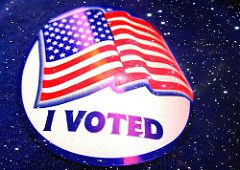In a March 1st New York Times article, “What Wouldn’t Jesus Do?” Peter Wehner writes about how incomprehensible it is that many Evangelicals support Donald Trump. For example, Evangelicals highlighted the significance of “moral probity” during Bill Clinton’s presidency (a trait many Evangelicals believed he lacked). Now many are saying they are not voting for a pastor, but a politician (Trump). Such shifting “exposes them as hypocrites” and “is difficult to fathom.”
It should be noted at the outset that Wehner is an Evangelical, who served in the last three Republican U. S. Presidential administrations. In seeking to provide a rationale for the shift, Wehner notes:
Part of the explanation is that many evangelicals feel increasingly powerless, beaten down, aggrieved and under attack. A sense of ressentiment, or a “narrative of injury,” is leading them to look for scapegoats to explain their growing impotence. People filled with anger and grievances are easily exploited. As the great Christian apologist C. S. Lewis wrote, “We must picture hell as a state where everyone is perpetually concerned about his own dignity and advancement and where everyone has a grievance.”
It is not just Evangelical Christians who can feel this way. All humans have the potential to feel “…powerless, beaten down, aggrieved and under attack.” My Zen Buddhist friend and author, Sallie Tisdale, reflected upon this article in correspondence with me. She had this to say: “I wonder if part of the incredible divisiveness in American politics comes from this feeling by not one, but many groups, all of whom are viewed as actually powerful and threatening by other groups.” There appears to be no question that divisiveness rules the day in American politics. All too often, wounded and beaten down people wound and beat down others. If and when this is the case, how do we proceed to cultivate community that allows us to be engaged in reasoned and impassioned discourse that accounts for significant differences, while at the same time seeking to build bridges rather than walls with those who differ from us. We must account for what shapes people, including their affections involving love and fear.
In a TED Talk titled “The Moral Roots of Liberals and Conservatives,” social psychologist Jonathan Haidt spoke of five moral foundations (“five sources of intuitions and emotions”) that register in people’s minds: harm/care, fairness/reciprocity, in-group/loyalty, authority/respect, and purity/sanctity. Haidt argues that we must account for these “foundations” when seeking to address society’s moral concerns. While liberals may emphasize the first two foundations, conservatives account for all of them to some degree (though emphasizing the latter three) in making political determinations such as how to vote. Haidt writes, “We can say that liberals have a kind of a two-channel, or two-foundation morality. Conservatives have more of a five-foundation, or five-channel morality.”[1]
Even so, I maintain that all of us long to be cared for, be approached with fairness, experience loyalty, receive respect, and be treated as ‘holy ground’ (my language). To the extent that such qualities are lacking, we disconnect, pull away from one another, and return the dysfunctional ‘favor’. When such tensions intensify and cultural warfare ensues, we experience trauma. As a result, we are no longer able to carry on rational conversations.
It is important that Evangelicals, Buddhists, Secularists and others cultivate a sense of security for public discourse. Without mutual respect, we will only increase hostilities. We always vote what we love and fear, in my estimation. But how often are those loves and fears rational? Rationality will only result from relational security and lead us to vote more virtuously.
The Institute for the Theology of Culture: New Wine, New Wineskins will be co-hosting a forum at Imago Dei Community, in Portland, Oregon, on April 13th, 7:00-8:30 PM titled “You Vote What You Love: Being Peacemakers in the Culture Wars.”
The blog post introducing the forum states,
Drawing from research in social psychology, and the theology of the affections, this forum will highlight how people make their decisions. We are more than just rational creatures, in this political season we must account for people’s emotional states in affecting change and cultivating civil discourse. Augustine argued that the whole world runs on love, be it ordered well or disordered and chaotic. How are we ordering our loves? How are our loves shaping us, for better or for worse? If you are what you love — what are you?
Come to the forum and find out more about your “righteous” mind.[2]
______________________
[1]More recently, Haidt and his colleagues are giving consideration to other intuition and emotions that may function as “candidates” for moral “foundationhood.” One that comes to the foreground is liberty. See the homepage of http://moralfoundations.org/.
[2]Haidt wrote a book titled The Righteous Mind: Why Good People Are Divided by Politics and Religion (New York: Pantheon Books, 2012); http://righteousmind.com/.














